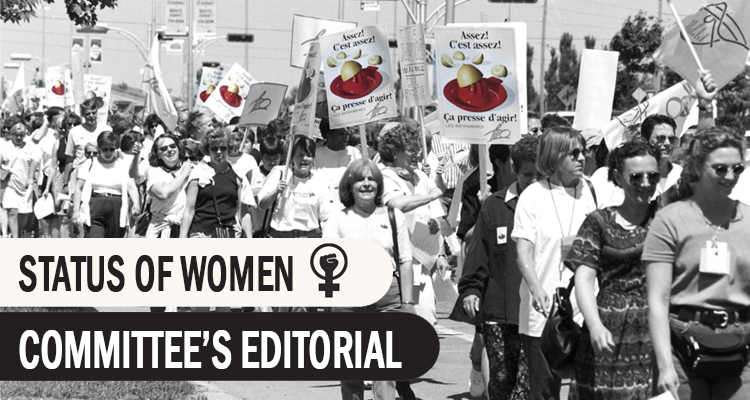
I remember
You all know the lovely Quebecois saying that is featured on our license plates, but do you remember major healthcare professional mobilizations from the past? While I did not witness them myself, I have heard a lot about them from my colleagues and nurse aunts.
In the union world, like elsewhere, we tend to forget women’s contributions to the history of Quebec. On the eve of a new period of negotiations, I want to talk to you about some extraordinary strikes so that we refresh our memory together.
Let’s start with the first illegal mobilization. In spring of 1989, the brand new union federation, the FIIQ, began negotiations with the government for its members’ new collective agreement. When the negotiation councils presented the first tentative agreement to their members, it was rejected in the general assemblies. One of the main reasons was the insufficient salary offer.
Members demand to be paid fairly for the true value of their work since patient care is not a vocation! Several actions were taken during these negotiations, including the overtime hours strike to demonstrate that the employer’s refusal to create more full-time positions, which members wanted, was unjustified.
This strike demonstrated the scope of overtime hours worked since 1,800 beds had to then be closed. Nurses were only kept in unstable jobs because of the employers’ stubbornness!
In the fall, these women started a 7-day illegal strike because they had had enough of their unacceptable working conditions. You probably heard about the many sanctions that these nurses received at the time: loss of salary, loss of seniority, fines, plus the cancellation of the Rand Formula.
Despite all of these sanctions, these women held strong until the end and they gained better working conditions. They obtained significant salary increases, a salary catch-up and more full-time positions. As for the disciplinary measures imposed by the government, these women signed moral agreements amongst themselves so that seniority would be respected when they applied for new positions or for their vacation dates. It was a beautiful show of reciprocal respect and solidarity!
Let’s talk about the strike in 1999 that led to another major healthcare worker mobilization.
On June 26, 1999, when there was a deadlock in negotiations with the government, the nurses voted for an unlimited general strike to obtain better working conditions. The mobilization continued for nearly 23 days in a row. Over 47,500 healthcare professionals stood up for their demands, to reduce their work overload and have access to suitable positions, faced with an austere government obsessed with having a zero deficit.
What we need to remember about this strike is the courage of these nurses to stand up against the government’s anti-union measures. They made a conscious choice to defy the government and that is why they are an inspiration for the union movement today.
Although these strikes took place years ago, the nursing union movement is still active and other great mobilizations have been organized. We must collectively remember that healthcare professionals can mobilize. Sometimes we may hear people say that predominantly female professions are less mobilized than masculine ones when it’s time to negotiate. Now you know that is simply not true.
From yesterday to today, healthcare professionals are UNITED, DETERMINED and MOBILIZED!
Hélène Vézina, Status of Women Committee